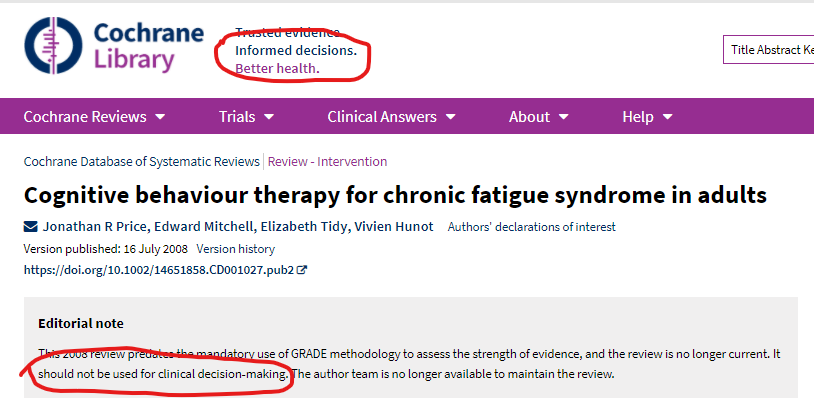Jonathan Edwards
Senior Member (Voting Rights)
They also like to use a language called ....
GET-IT
GET-IT stands for the Glossary of Evaluation Terms for Informed Treatment choices.
The aim of this glossary is to facilitate informed choices about treatments by promoting consistent use of plain language and providing plain language explanations of terms that people might need to understand if they wish to assess claims about treatments.
GET-IT
GET-IT stands for the Glossary of Evaluation Terms for Informed Treatment choices.
The aim of this glossary is to facilitate informed choices about treatments by promoting consistent use of plain language and providing plain language explanations of terms that people might need to understand if they wish to assess claims about treatments.

